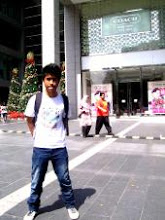Elements of Drama
There are elements in drama, this elements satisfy the drama portray by the characters. These elements make the drama, more effective in such ways; listeners or viewers may not get bored, the performance is enjoyable for the audience and the most important is that the whole scene delivers the meaning behind its drama. So, these are the elements of Drama:
Plot – is usually structured with acts and scene
Theme – The plot has been the called the body and the theme have been called as the soul. Most plays have a conflict of some kind between individuals, between man and society, man and some superior force or man and h imself. The events that this conflict provokes make up the plot. One of the first items of interest is the playwright\rquote s treatment of the plot and what them he would draw from it. The same plots have been and will be used many times; it is the treatment that supplies each effort with originality or artistic worth. Most plays have a conflict of some kind between individuals, between man and society, man and some superior force or man and h imself. The events that this conflict provokes make up the plot. One of the first items of interest is the playwright\rquote s treatment of the plot and what them he would draw from it. The same plots have been and will be used many times; it is the treatment that supplies each effort with originality or artistic worth.
Dialogue - Dialogue provides the substance of a play. Each word uttered by the character furthers the business of the play, contributes to its effect as a whole. Therefore, a sense of DECORUM must be established by the characters, ie., what is said is appropriate to the role and situation of a character. Also the exposition of the play often falls on the dialogue of the characters. Remember exposition establishes the relationships, tensions or conflicts from which later plot developments derive.
Convention - The means the playwright employs are determined at least in part by dramatic convention.
Genre - Genre is a term that describes works of literature according to their shared thematic or structural characteristics. The attempt to classify literature in this way was initiated by Aristotle in the Poetics, where he distinguishes tragedy, epic, and comedy and recognizes even more fundamental distinctions between drama, epic, and lyric poetry.
Audience - t is the act or chance of hearing; a reception by a great person; the person to hear. Playhouse, script, actors, mise en scene, audience are inseparable parts of the theatre. The concept of drama put forward in this book insists that the audience have an indispensable role to play.
Stagecraft - The stage creates its effects in spite of, and in part because of, definite physical limitations. Setting and action tend to be suggestive rather than panoramic or colossal. Both setting and action may be little more than hints for the spectator to fill out.
Design – It is all over design the theaters, characters and the facilities need by the whole production of drama. So here are the related issue when in comes to design.
• Theater Space -
• The Proscenium Theater
• The Thrust Stage
• The Arena Stage
• Variant Forms
• The Fixed Architectural Stage
• Auditoriums
• Set Design
• Stage Facilities
• Lighting Design
• Costume Design
• Mask
• Makeup
• Technical Production
• Sound and Sound Effects
Conversion - Conversions, closely examined, will be found to fall into two classes: changes of volition, and changes of sentiment.
Monday, February 8, 2010
Subscribe to:
Post Comments (Atom)




No comments:
Post a Comment